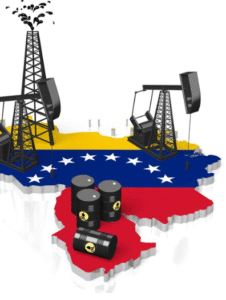$BNO $OIL $USO
#Russia #CrudeOil #ESPO #China #OilPrices #EnergyMarkets #Commodities #ICEBrent #Trading #GlobalEconomy #OilImports #MarketDynamics
The recent downturn in the price of Russia’s ESPO crude oil illuminates a significant shift in the global energy market, particularly impacting relations between Russia and China. ESPO crude, the principal grade exported from Russia’s Far East, has seen a precipitous drop in price to its lowest level since June 2024. This downturn has flipped its valuation to a discount against the ICE Brent, the international oil benchmark. The cause of this shift is directly tied to declining demand from Chinese state-owned companies, a substantial market mover given China’s role as a significant importer of Russian crude.
For over nine months, ESPO crude enjoyed a premium in its price relative to ICE Brent, indicating strong demand and a robust market position. However, the scenario has dramatically changed, with April loadings of ESPO now trading at a discount of approximately $1.50 a barrel to ICE Brent on a delivery basis to China. This shift to a discount, as reported by sources to Reuters, marks a notable reversal in trading dynamics, underscoring the volatility and sensitivity of energy markets to geopolitical and economic factors.
This slump in ESPO pricing comes amid broader global economic fluctuations and evolving energy strategies among leading market players. China’s reduction in imports of Russian crude could be attributed to several factors, including efforts to diversify energy sources, internal economic recalibrations, or a response to international political pressures. Whatever the cause, the impact extends beyond immediate pricing concerns; it prompts a reconsideration of energy dependence, supply chain vulnerabilities, and long-term strategic partnerships in the global geopolitical landscape.
The current scenario presents potential opportunities and challenges for investors and market analysts. From a financial perspective, the changing dynamics of the crude oil market amidst geopolitical tensions and economic policy shifts offer a fertile ground for speculatory activity and strategic investments. However, it also necessitates a cautious approach, given the inherent uncertainties and the potential for sudden market shifts driven by policy changes or geopolitical developments. As the situation evolves, close monitoring of market reactions, policy decisions by key stakeholders, and broader geopolitical trends will be essential for those seeking to navigate the complexities of the global energy market.











Comments are closed.